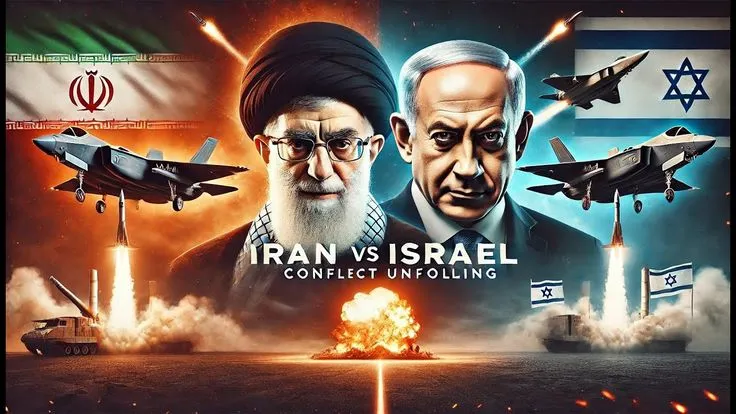In the recent conflicts, Israel’s strikes have certainly hurt Iran, but Tehran’s bold and timely counterattacks have shocked the world. For the first time in history, Iran directly launched missile and drone attacks on Israeli territory, making it clear that it will no longer be limited to proxy wars. This act marks a major turning point in Middle Eastern politics.
What’s more surprising is that traditional Sunni opponents of Iran — especially Gulf states — are now reluctantly beginning to accept Tehran’s leadership. Iran has openly declared that any country that allows the US or Israel to use its territory will not be forgiven.
We Muslims often admire the West, but today, this supposedly declining country of just 80 million people is selling drone technology to Russia, has become China’s $400 billion trade partner, and is directly challenging a military superpower like Israel.
So why is Iran so confident in this war, led by an 80-year-old religious leader? Let’s take a closer look.
Iran’s military strength includes vast underground “missile cities” producing Shahab, Qadr, and Fateh missiles. Its cost-effective and powerful drone technology is now being exported to Russia and other countries, and it even has the ability to challenge Israel’s highly advanced Iron Dome system.
Despite heavy international sanctions, Iran’s economy is growing. With massive trade deals with China and Russia, illegal oil exports, and the use of cryptocurrency, Iran is rapidly moving toward economic self-reliance.
Its proxy allies make up another pillar of strength. Hezbollah in Lebanon keeps pressure on Israel’s northern border, the Houthis in Yemen are disrupting global trade through attacks in the Red Sea, and Iraqi militias continue to resist American military presence.
Meanwhile, global public opinion is shifting. Across Europe — in countries like France and Germany — citizens are protesting against Israel’s actions. In the US, even members of the Democratic Party are criticizing President Biden’s Israel policy.
Within the Muslim world, things are changing too. Gulf countries like Saudi Arabia and the UAE are now exposed for their silent alliances, while public anger in support of Palestine is rising. The once-powerful Salafi clerics who served the interests of governments are losing credibility.
At the heart of Iran’s strength is its ideology — the concept of Wilayat-e-Faqih (Guardianship of the Jurist), which fuels its role as a resistance leader in the region and promotes constant struggle against Israel.
Despite Israel’s military strength, Iran has proven itself capable on all fronts — military, economic, ideological, and through its regional proxies. With growing international backlash against Israel and a political awakening in the Muslim world, the tide seems to be turning in Iran’s favor.
— Dr. Asiya Madani


